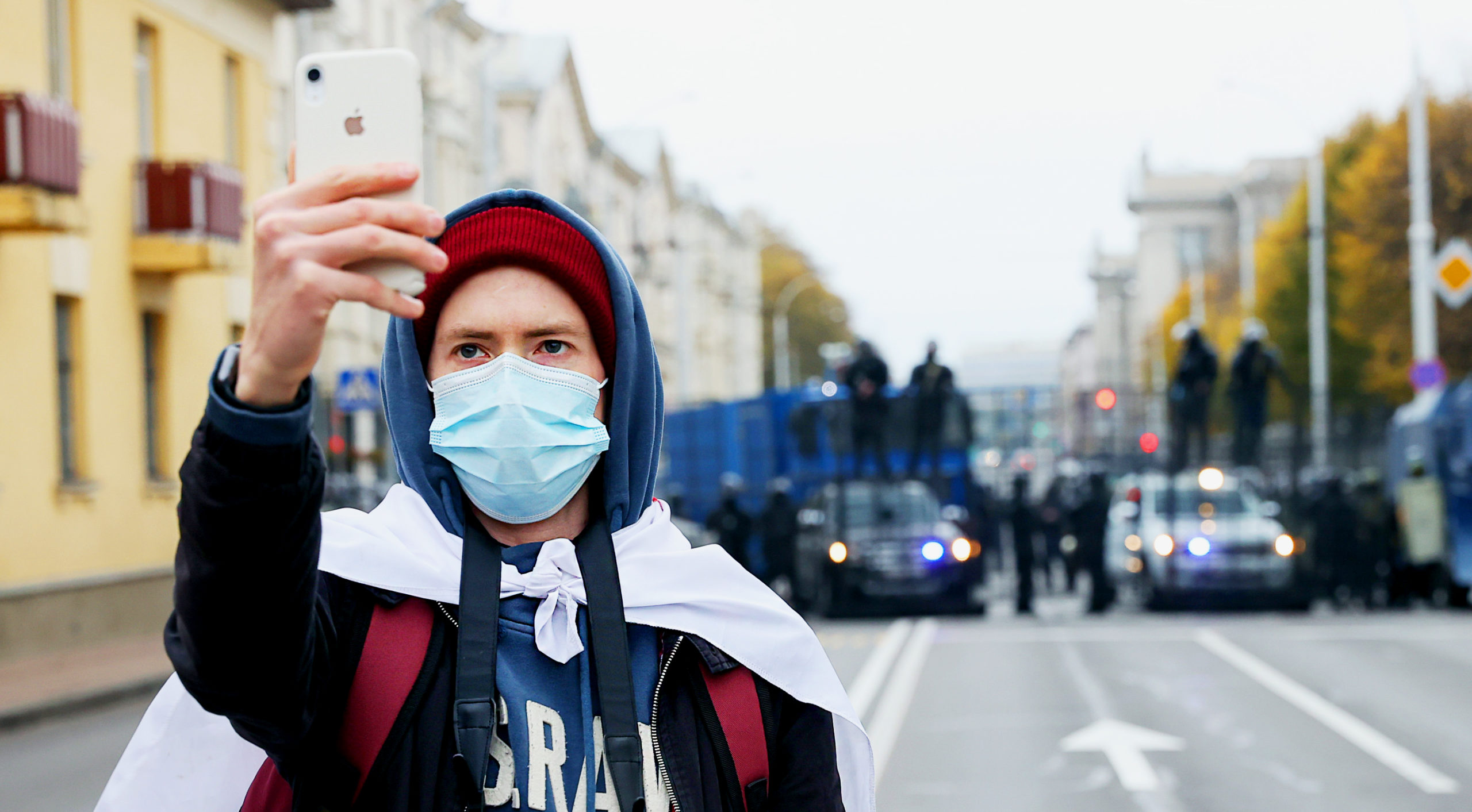Masks as a legal requirement may be on the way out, but Apple clearly thinks masks will be with us for a while. They’ve updated the facial recognition system on the iPhone 13 so you can unlock it with your masked face.
Apple have been quick to tool up for Covid from the start. As well as collaborating with Google on the Bluetooth exposure-notification (AKA contact-tracing) feature, they put an automatic hand-washing timer into the Apple Watch, and added a blood oxygen meter. If you don’t have a vaccination record app like the NHS App, you can store it in your Apple Wallet.
Health tech was already a territory that Apple had its eye on, like Google, before Covid turned it into a global obsession. What better way to get everyone to buy your gadgets, use your services, and implore you to collect their most intimate data, than to promise it will keep them healthy, or even save their lives?
True, centralising personal data is going out of fashion. Apple makes a big deal about keeping your data on your phone, encrypted, not in their central servers (apart from the things you back up to iCloud, obviously). If you do use your face, masked or un-masked, to unlock an Apple device, your likeness is hashed and kept local, not added to a digital line-up in someone’s database. You can choose whether to share all the information your device collects without being asked, like the 1.9 miles I walked yesterday, or my 79 cm average step length (is that good?).
Thanks to sophisticated analytics, Apple can learn aggregated lessons from everyone’s data without taking it off the phone or identifying an individual. It can then use those aggregated lessons to alert you if your heart rate is cause for concern, or your walk is dangerously unsteady.
But, as Apple say, “caring is sharing.” Why not set an alert for a sudden fall, so somebody will come and find you? In fact, you can let your doctor or family member see when your sleep patterns change, or your heart beats faster.
Health data is one of the hard cases for data ethics. The benefits, to individuals and society, of sharing health data are potentially immense. Using the comprehensive health records the NHS has amassed would save lives, as well as bringing money into an impoverished Health Service. But it’s also the most intimate form of data, with privacy implications for families and partners as well as individuals. Giving control to individuals, with the option to share, is arguably the best route.
But there is another danger to the constant presence of devices that monitor our vital signs. It’s already going to be hard to turn our attention away from physical health, as the pandemic recedes, and back to other aspects of human life. Do we really want to be trapped in a constant feedback loop of biomedical minutiae?
There’s a reason some health insurance companies give you free gadgets to monitor your activity levels. They think it will encourage you to be more active and, in the long run, cost them less money. Collecting data is just the first stage in a cycle of monitoring, feedback, reward and behaviour change. Nudge, in short.
After all, life is more than just a database of healthy behaviour. Post-Covid, isn’t it time to turn our attention back to all the things — and people — that make being alive worthwhile?











Join the discussion
Join like minded readers that support our journalism by becoming a paid subscriber
To join the discussion in the comments, become a paid subscriber.
Join like minded readers that support our journalism, read unlimited articles and enjoy other subscriber-only benefits.
Subscribe